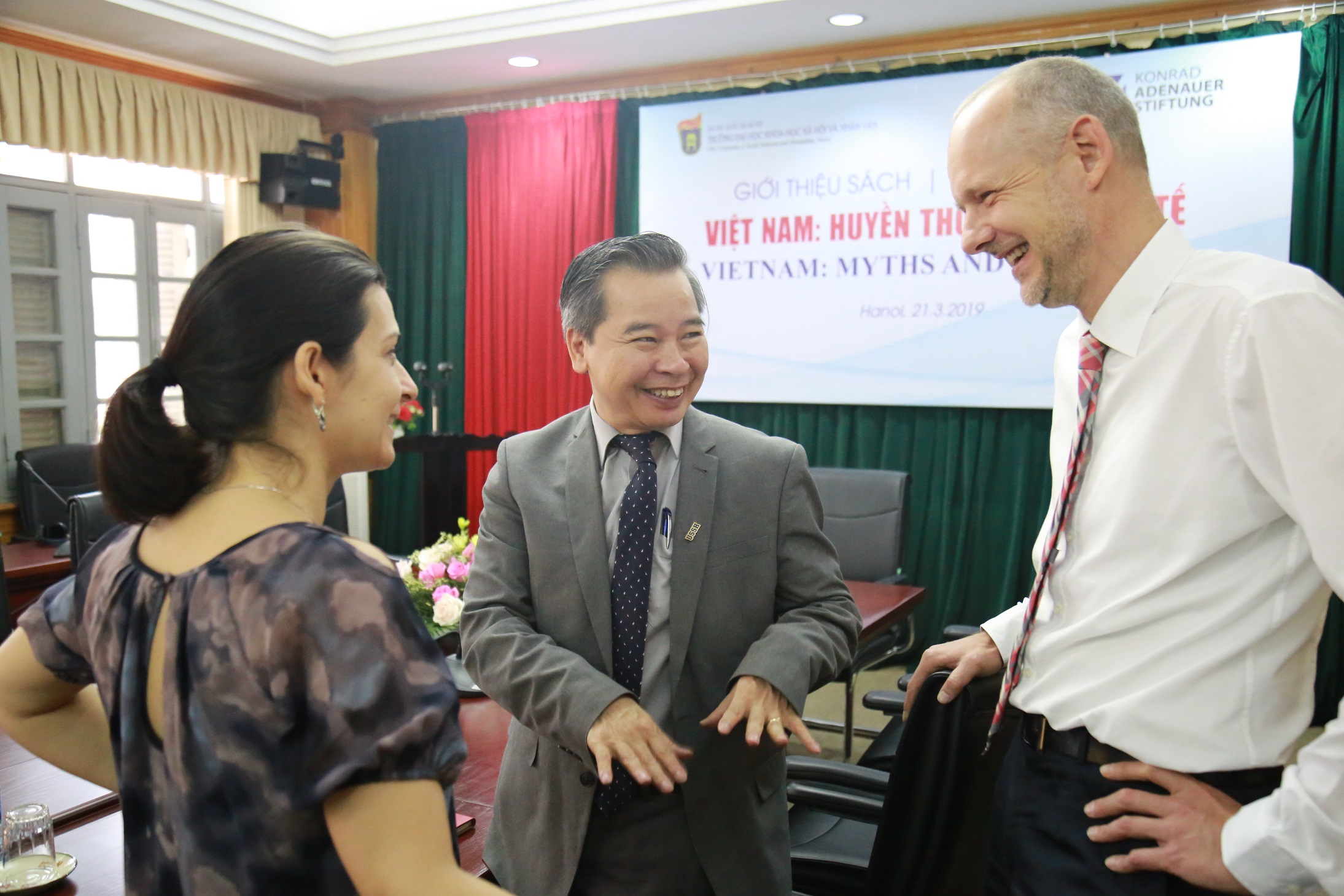
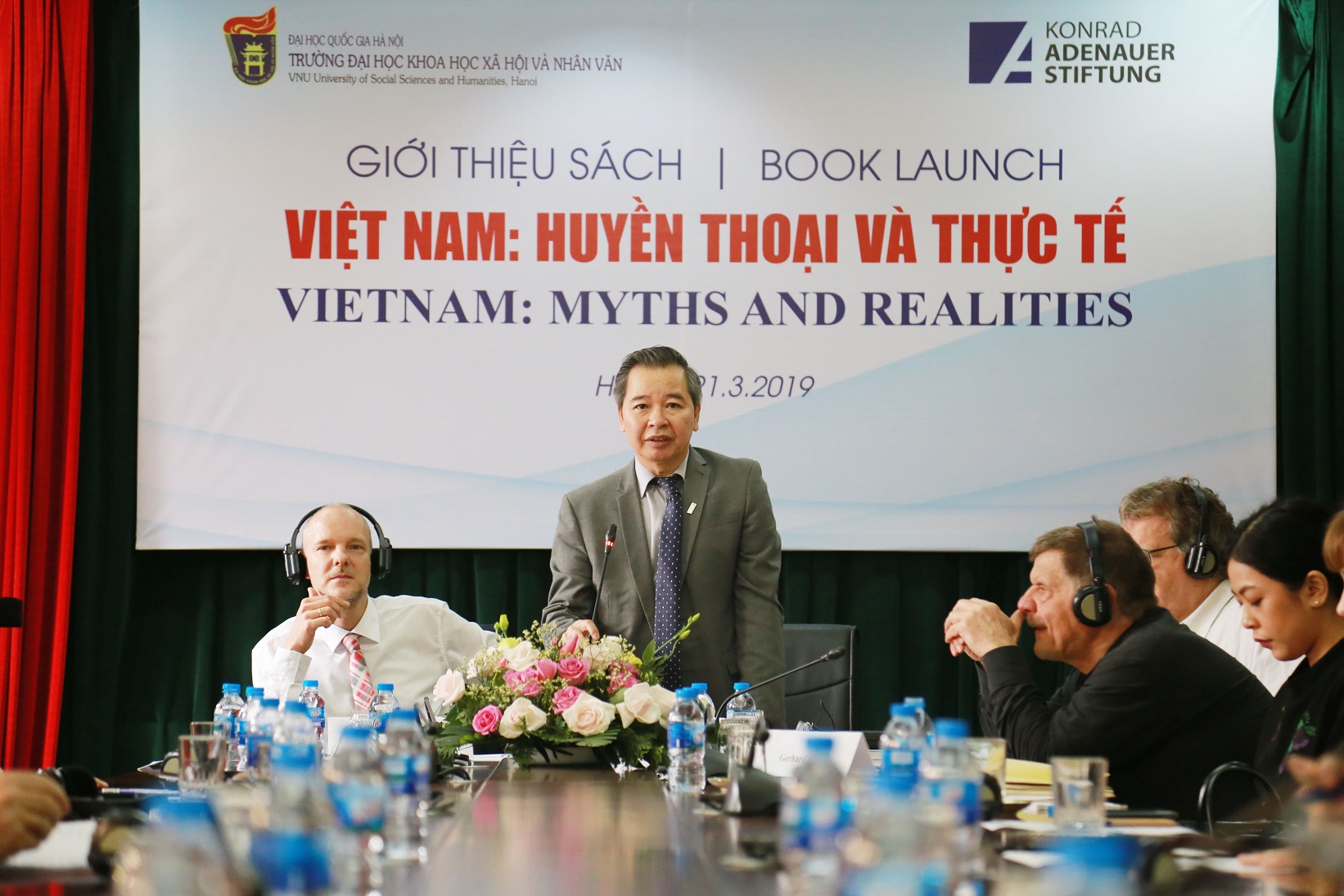
Professor Pham Quang Minh (Rector of the University of Social Sciences and Humanities) delivered the opening remarks at the book launch of "Vietnam: Myth and Reality".
These are some of the key points written in the book "Vietnam: Myth and Reality," published in Germany in 2018 by a group of German and Vietnamese researchers, funded by the Konrad Adenauer Institute (Germany), and also the topics discussed at the book launch at the Hanoi University of Social Sciences and Humanities on March 21st.
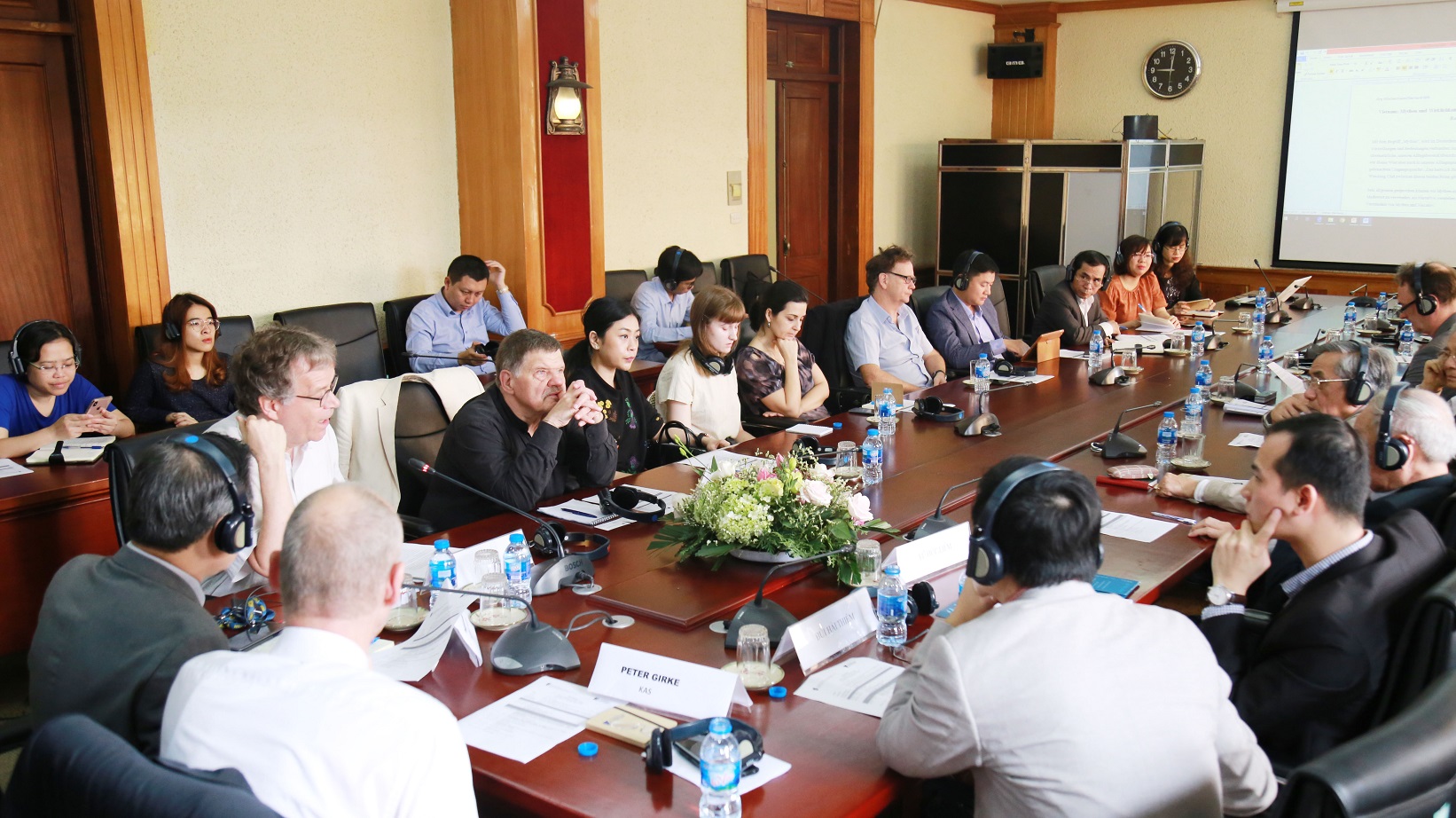
The book launch was attended by German and Vietnamese scholars, as well as representatives from several foreign embassies.
Myths are stories and legends that may contain both fact and fiction about a society. Analyzing, deciphering, and viewing myths from multiple perspectives will help us better understand how symbols, stories, and social phenomena have influenced and impacted social life and individuals.
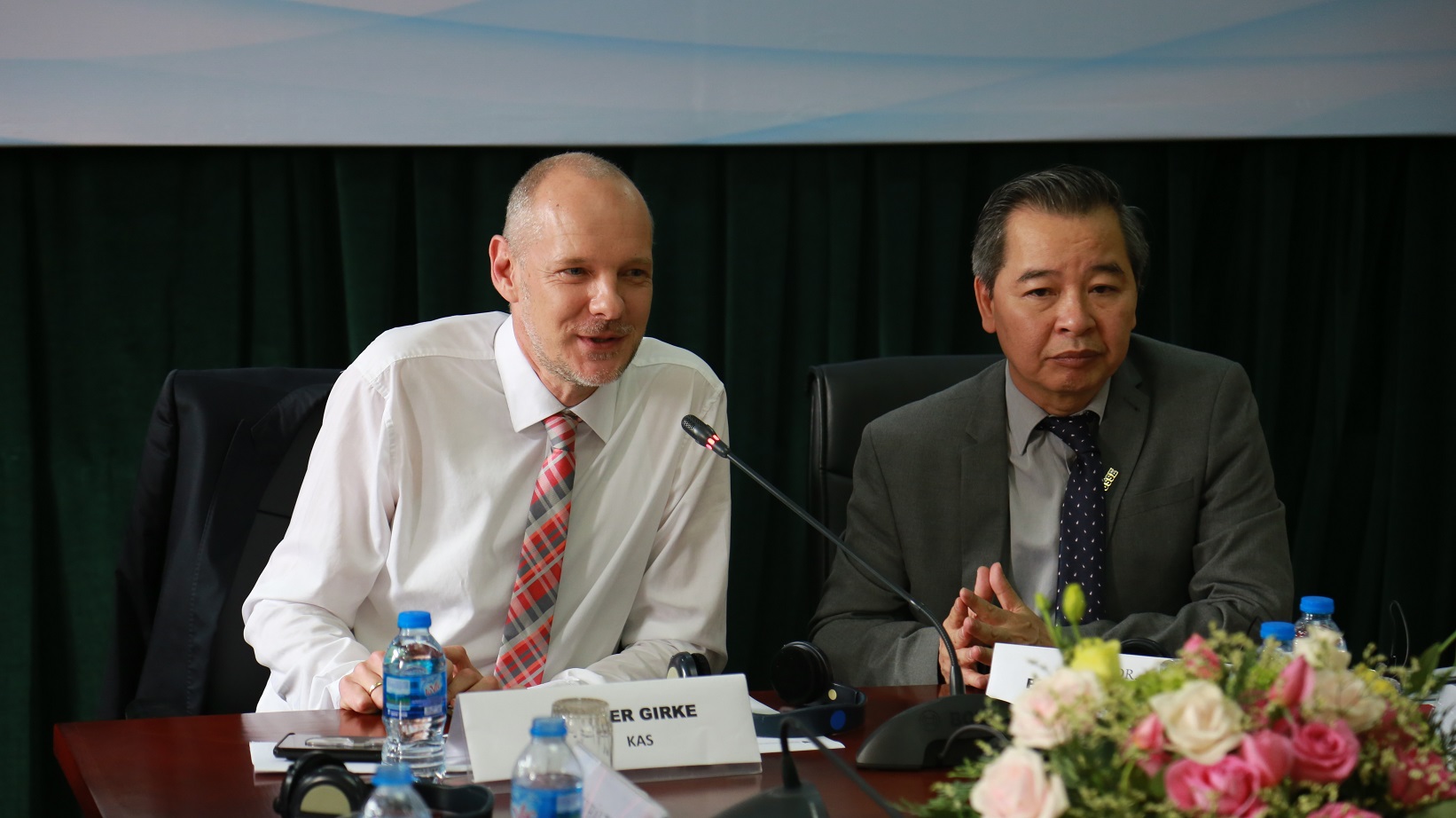
Mr. Peter Girke - Director of the Konrad Adenauer Institute (Federal Republic of Germany) in Vietnam stated at the book launch event
Within that analytical framework, Dr. Bui Hai Thiem (Institute of Legislative Research, National Assembly) discussed the myths, misconceptions, and truths surrounding social media in Vietnam.
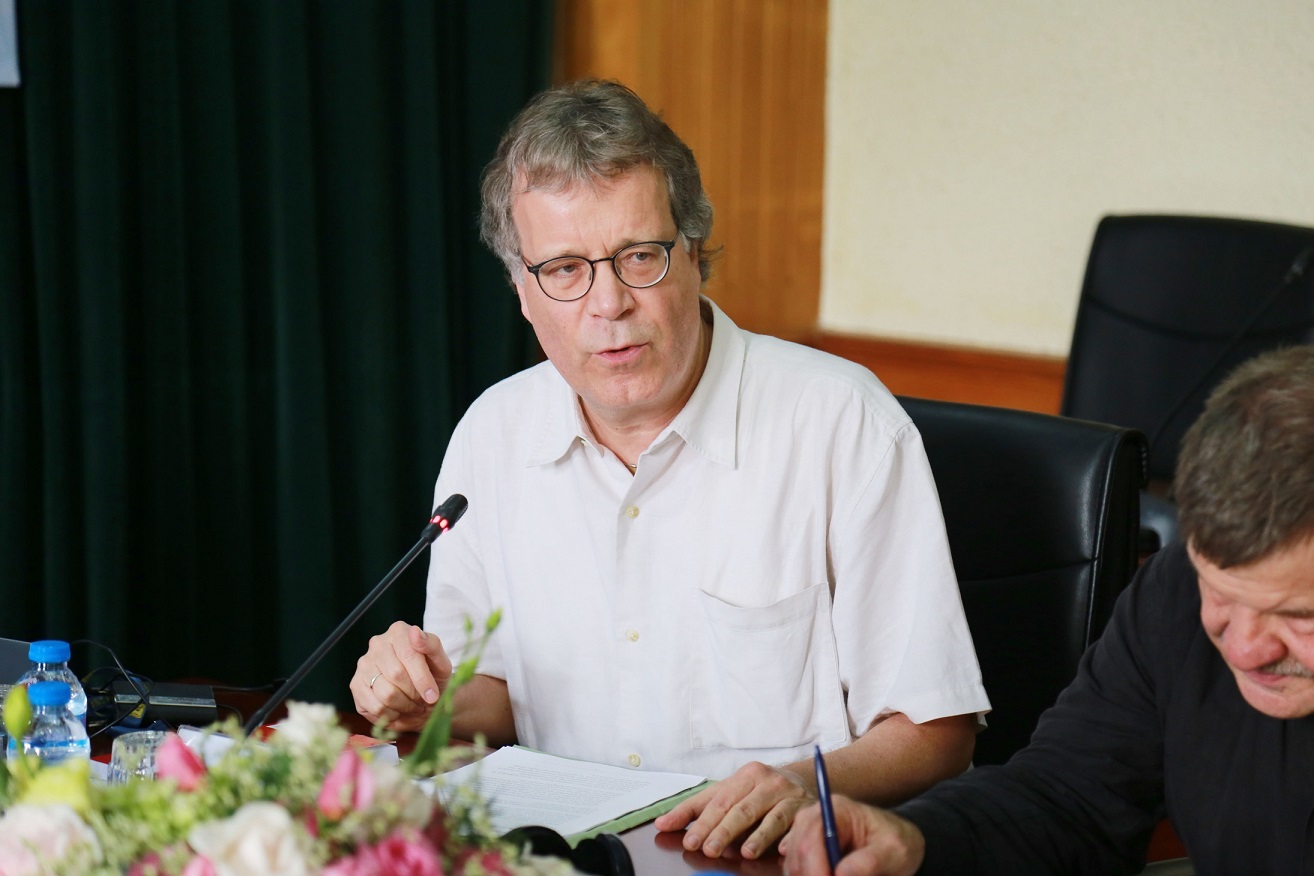
Dr. Jorg Wischermann introduced his book "Vietnam: Myth and Reality". His presentation was titled "What is political myth and what can we learn from studying them in Vietnam and Germany?"
Currently, social media has become an indispensable part of modern life in Vietnam, with approximately 50 million Facebook users, not to mention other social networks, leading to an information explosion and readership figures that almost no mainstream newspaper can achieve, even significantly impacting traditional journalism. With this power, in its early days, social media was considered an "equal space for individuals to express their thoughts and opinions." "But in reality, it can be fertile ground for hostility, bringing about negativity, fake news, and misinformation; social media also functions to create social consensus, to monitor and track, and can be exploited by political factions and various economic forces," said Dr. Bui Hai Thiem.
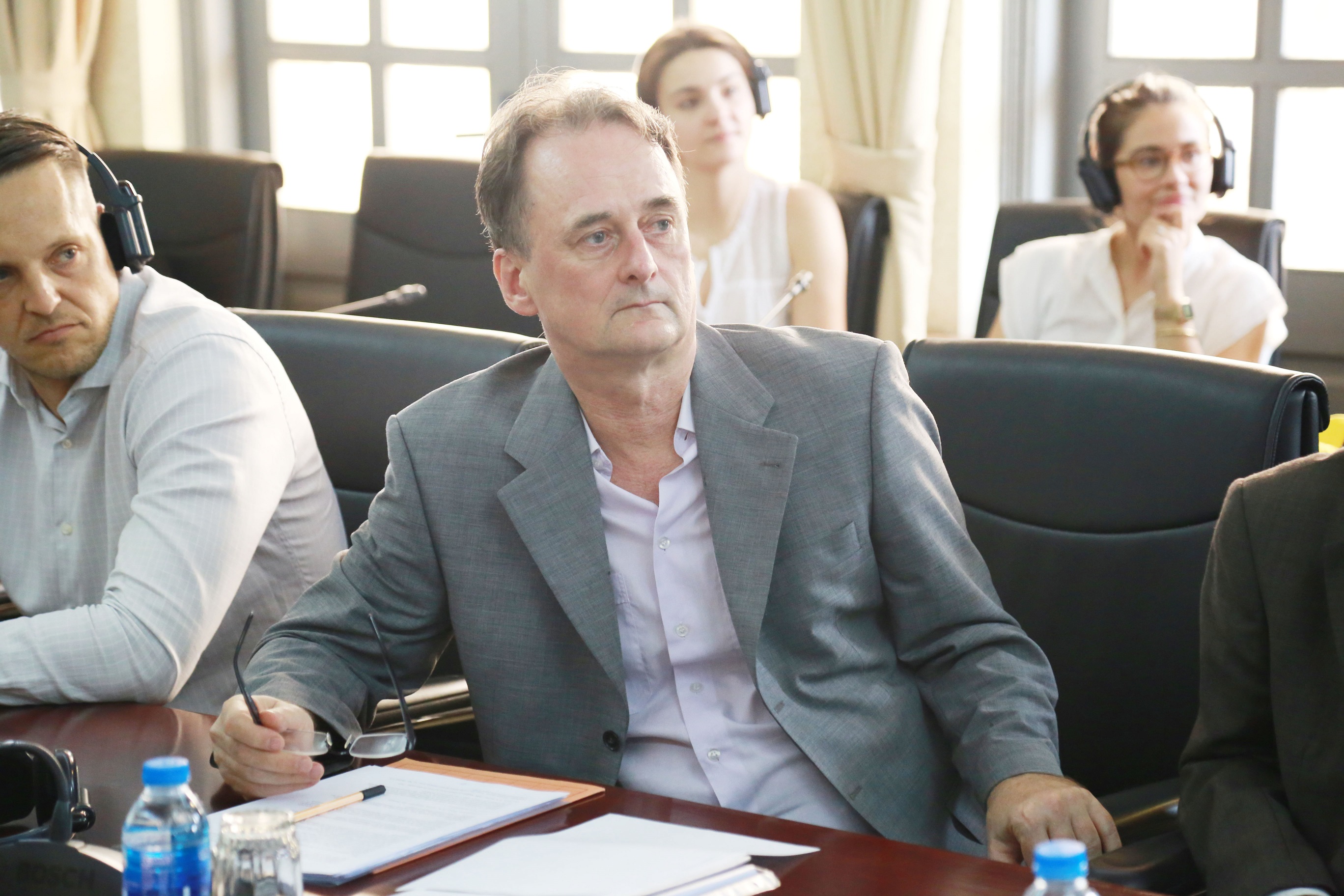
Prof. Dr. Thomas Engelberg (University of Hamburg, Germany)
The initial expectations and illusions about the power and equality of social media were merely a "contemporary myth." However, the mythical and the realities of social media are intertwined, making it difficult for users to distinguish between the real and the fake. Therefore, Dr. Bui Hai Thiem summarizes some conclusions that serve as a kind of "decoding": social media creates information and socio-political capital, or destroys the socio-political capital that some people once possessed; it also helps to reveal and identify the loopholes and cracks in issues ranging from history to economics and society; it is a battlefield for economic and political battles, and the rise of various interest groups. Understanding the dimensions of information, the virtual and real aspects of social media will provide users with the tools to understand the "virtual" and "real" aspects of social media, thus making them more discerning in the face of different information flows.
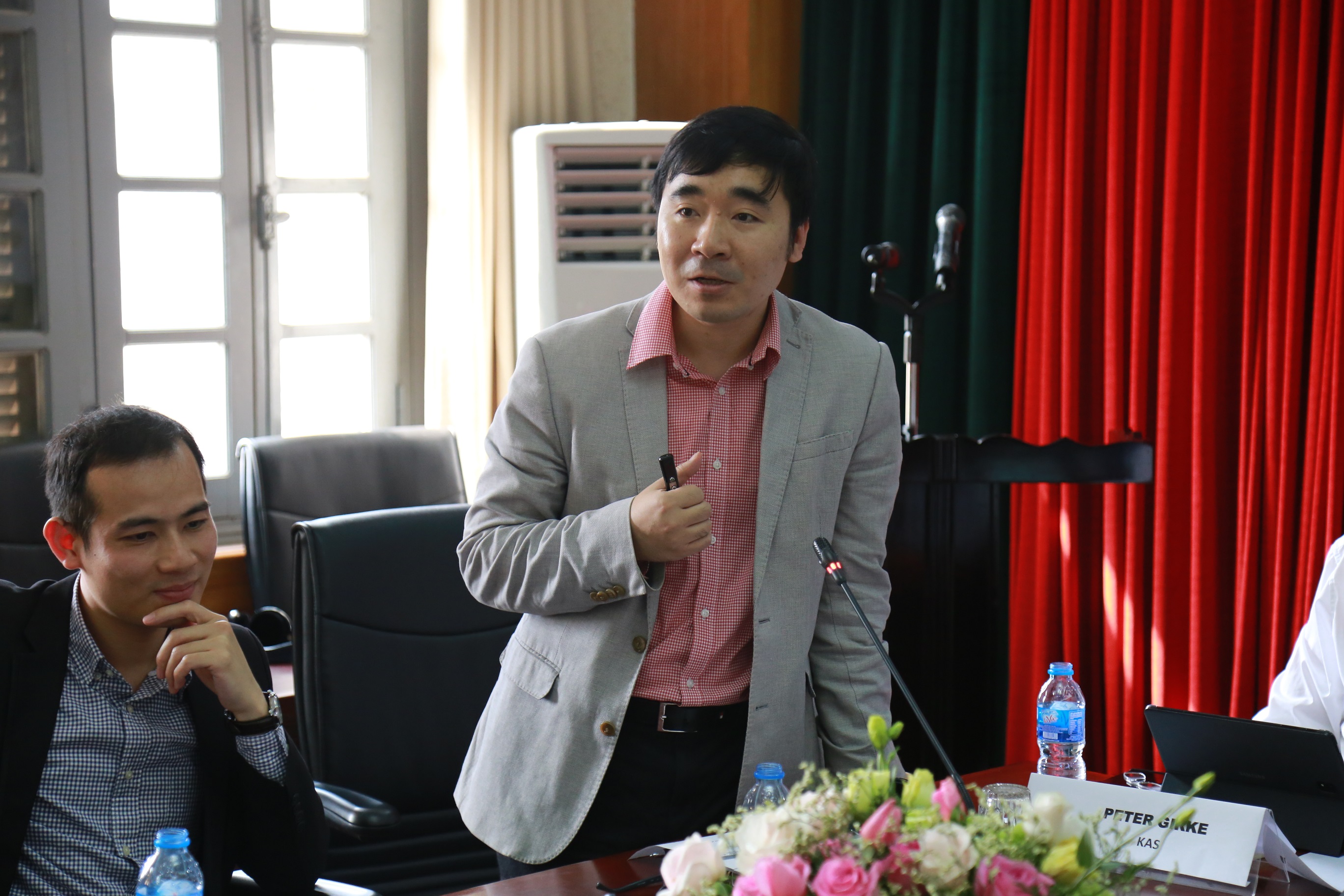
Dr. Bui Hai Thiem presented a talk titled "Political Myths on Social Media as a Free Cyberspace and Free Online Expression in Vietnam".
Enduring, familiar, and widespread cultural symbols can also be created and nurtured with different expectations and purposes throughout historical periods, and the symbol of King Hung is one typical example, according to researcher Vu Duc Liem of Hanoi Pedagogical University.
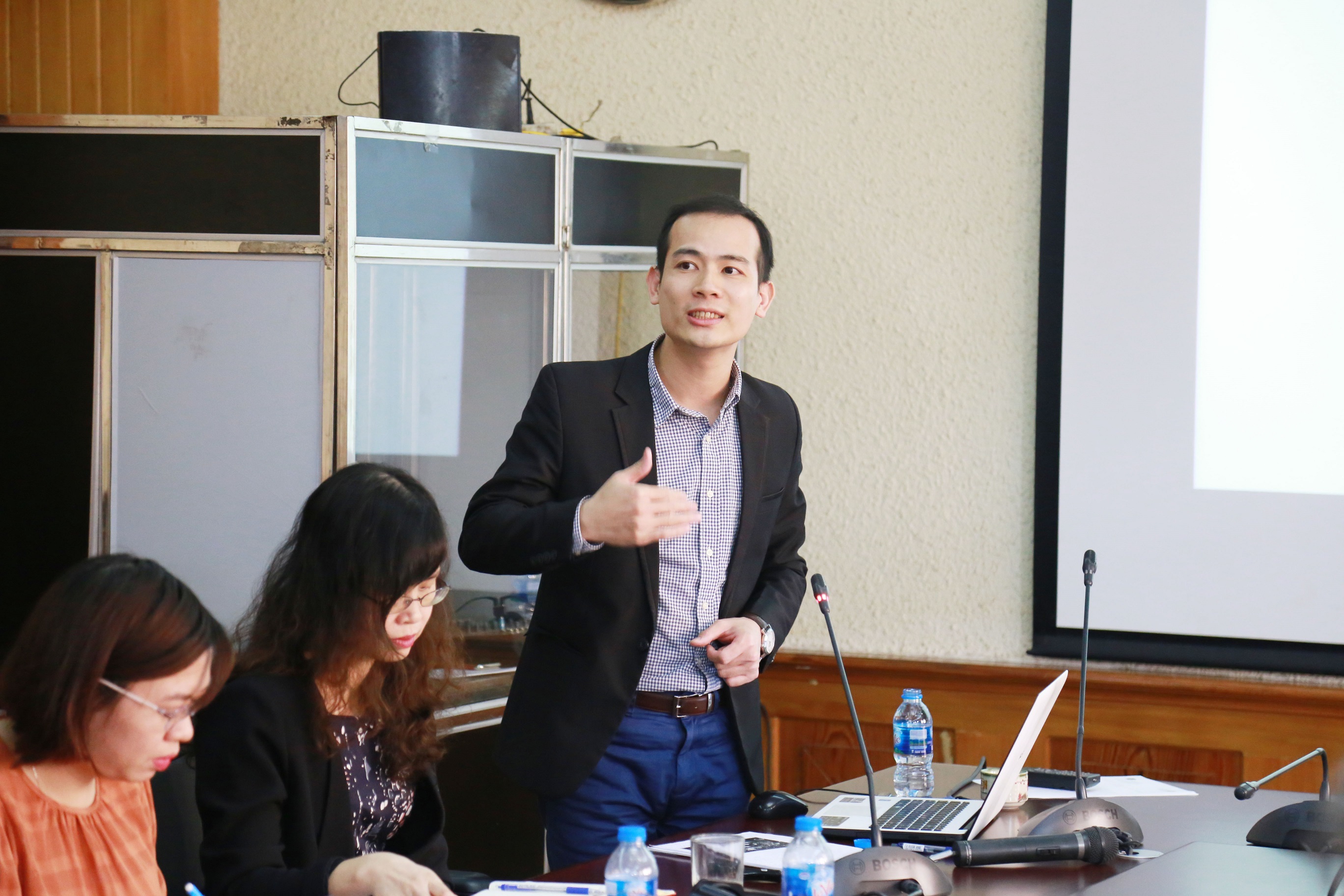
Dr. Vu Duc Liem presented the topic "Mythical Past and the Political Story Behind National Identity in Contemporary Vietnam".
In recent years, the Hung Temple Festival has welcomed millions of pilgrims (in 2017, it welcomed up to 8 million, with 1 million of them on the festival day of March 10th alone, according to Nhan Dan newspaper).1) and is the largest pilgrimage in modern Vietnamese history. But that is not a historical fact, but rather the result of a process of creation. From the 14th-15th centuries, the first handwritten text about the genealogy of 18 Hung kings over more than 2500 years became the first historical material, from which the legends surrounding it were later woven and further imagined.
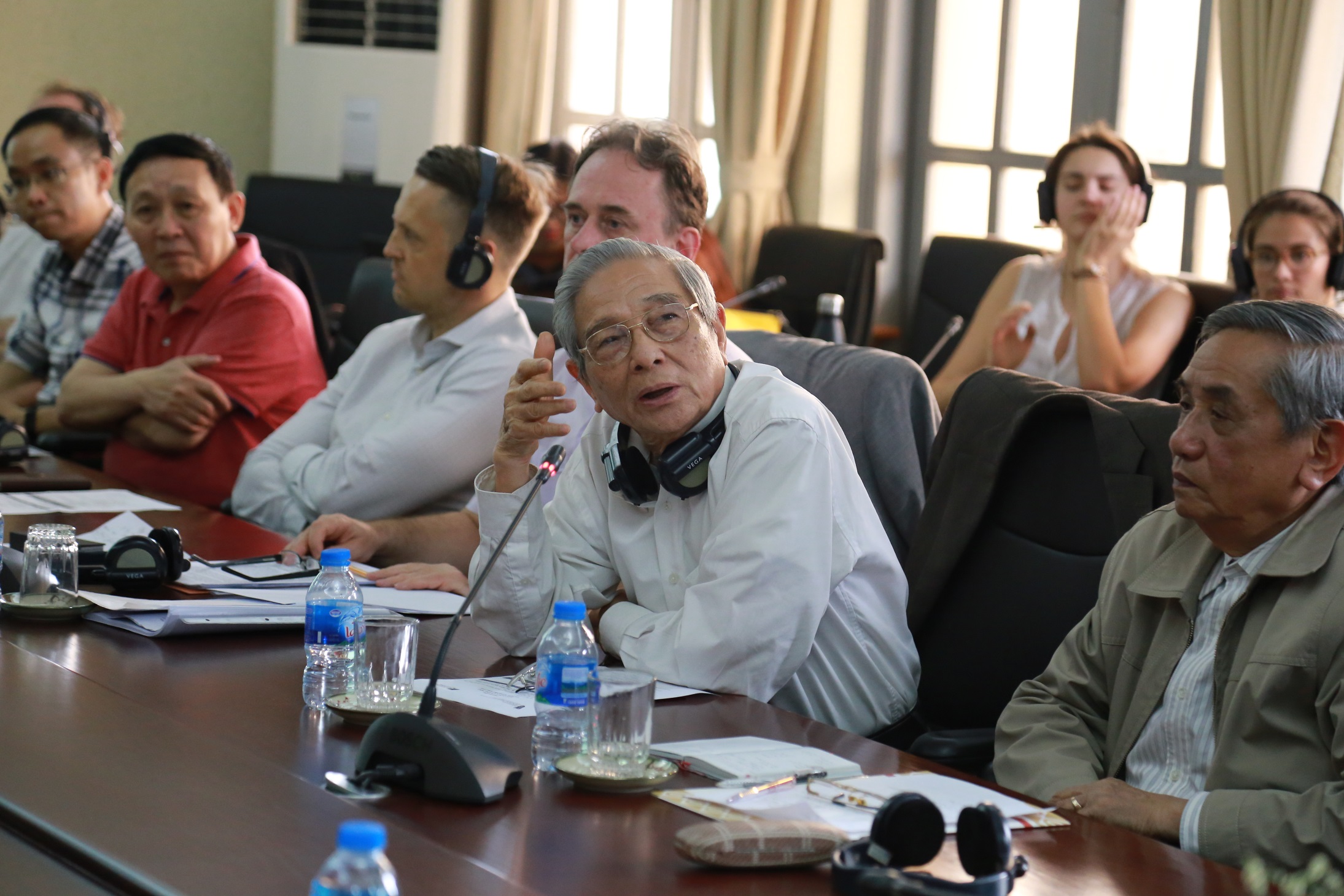
Professor Nguyen Huy Quy
In the modern era, during the 1960s and 1970s, Vietnamese historians continuously produced new knowledge about the Hung King period. In the current context, with changes in religious policy in Vietnam and the promotion of traditional Vietnamese cultural values, the influence of the Hung King legend is becoming increasingly stronger. With the Hung King worship belief being recognized by UNESCO as an intangible cultural heritage, and with numerous efforts from the central to local governments, the Hung King festival has been administratively and nationally formalized, and its influence extends beyond a single ethnic group (the Kinh people) to encompass various other ethnic groups. It can be said that strengthening the symbol of the Hung King is an expression of "re-establishing a new identity for Vietnamese culture," according to researcher Vu Duc Liem.
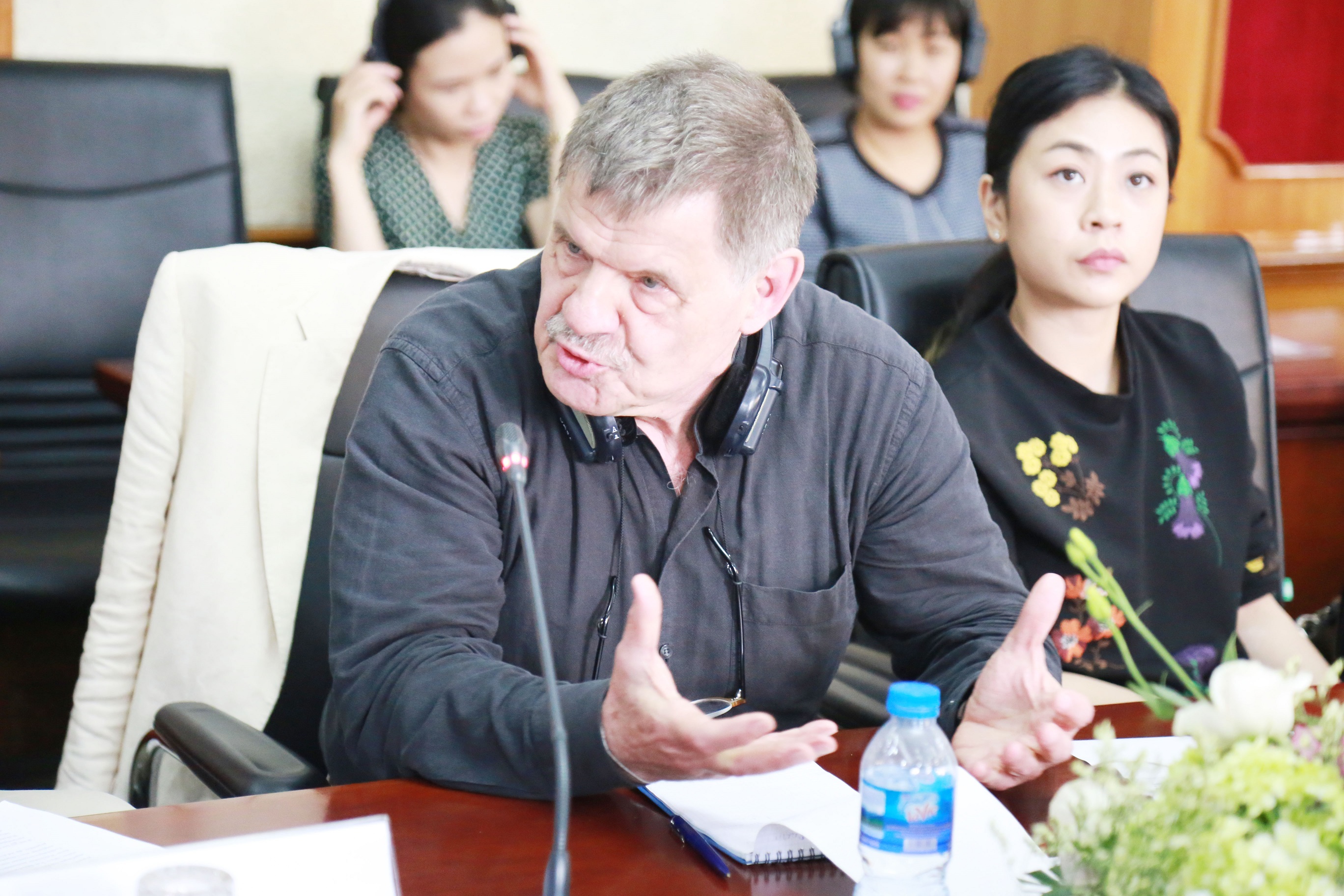
Dr. Gerhard Will, Southeast Asia specialist at SWP (Federal Society for Science and Politics of Germany)
In a discussion with researcher Vu Duc Liem, Dr. Pham Van Thuy (Faculty of History, Hanoi University of Social Sciences and Humanities) argued that the image of King Hung needs to be linked to a broader context, namely the building and consolidation of national unity, and recently, the flourishing promotion of King Hung is also related to the explosive economic development and the proliferation of religious and spiritual activities.
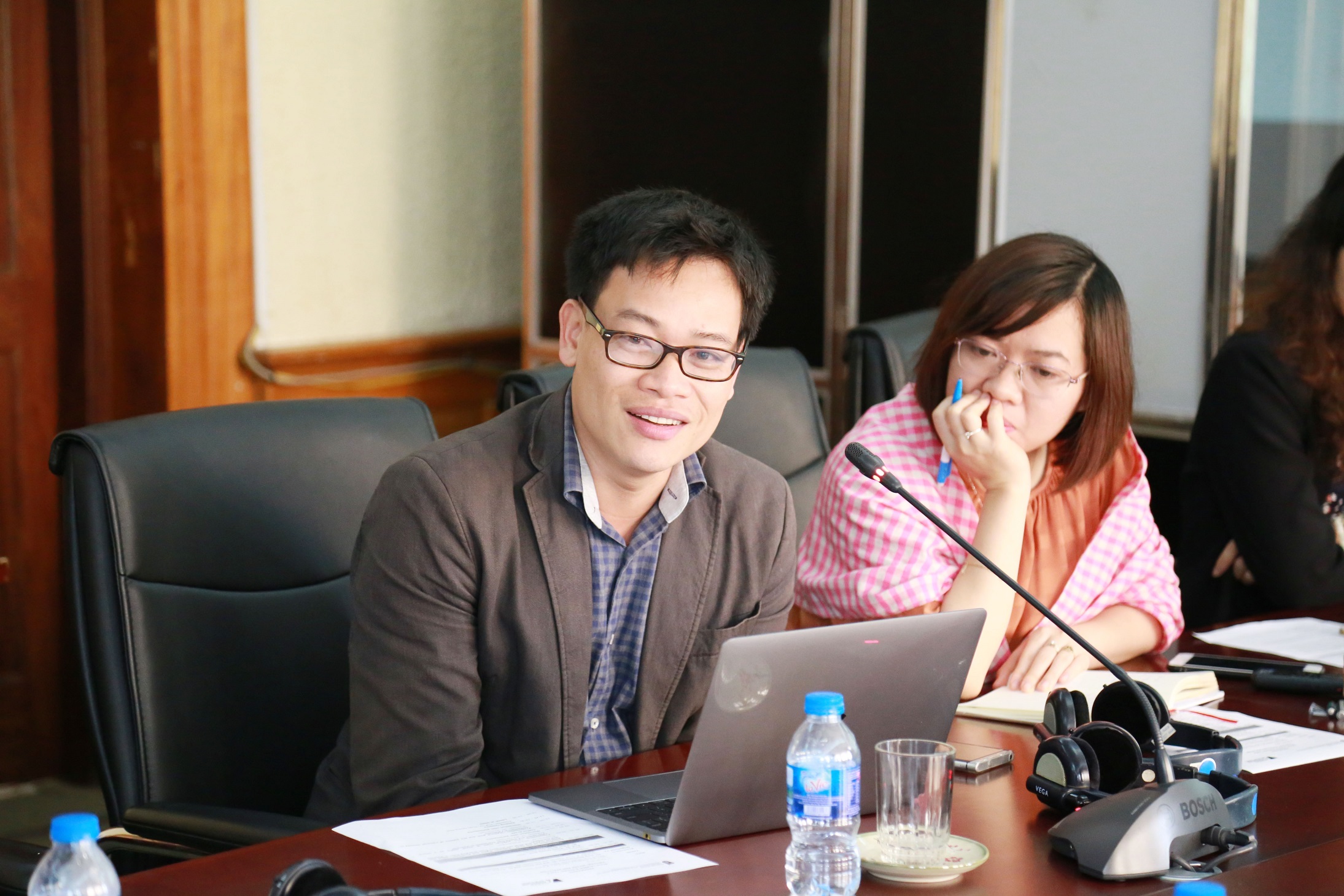
Dr. Pham Van Thuy (Department of History, University of Social Sciences and Humanities)
Affirming that the construction of myths, such as founding myths and myths about humankind, is a common phenomenon in world history, Professor Pham Quang Minh (Rector of the Hanoi University of Social Sciences and Humanities) stated that the discussions raised in the book are very novel and necessary – to better understand history as well as many phenomena in modern society that we have not yet been able to explain. He also noted that these discussions are "tools" – providing different interpretations of history rather than affirming and seeking a truth or a definitive history.
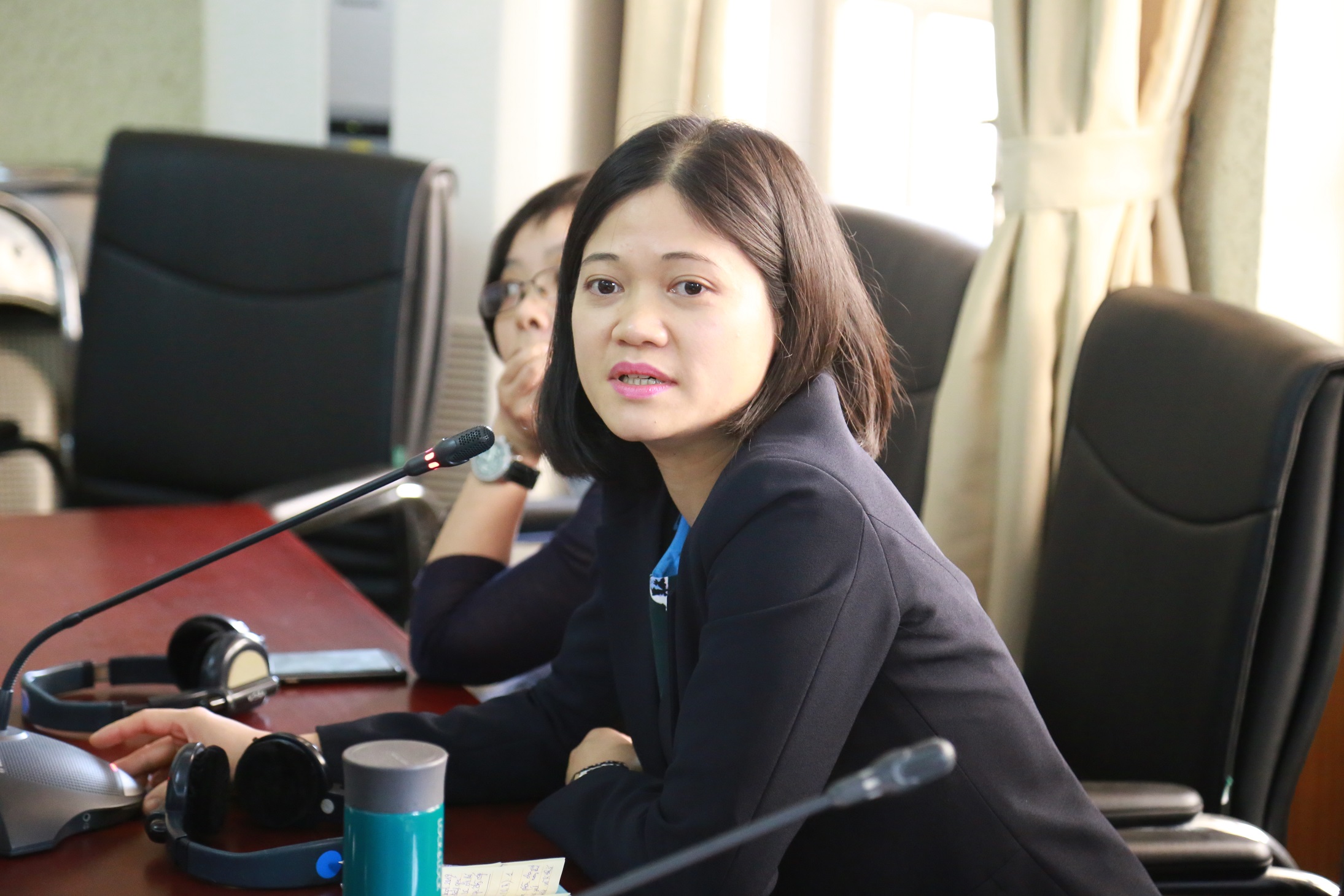
Dr. Do Thuy Lan (Department of History, University of Social Sciences and Humanities)
Note:
1 http://nhandan.com.vn/hangthang/item/32743402-gio-to-hung-vuong-nam-2017-don-gan-tam-trieu-luot-du-khach.html
Author:Thu Quynh. Photo: Cong Minh
Newer news
Older news